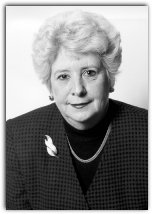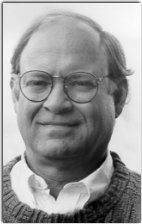 |

 |
|
By David Williams Editor, The Letter , Kentucky's GLBT Newspaper
 By a vote of 7-5 on January 26, the Louisville Board of Aldermen passed a Fairness ordinance that protects citizens against workplace discrimination on the basis of their sexual orientation or gender identity. Two other measures covering housing and public accommodations were tabled for lack of support but could be resurrected at any time over the next six months. Mayor Dave Armstrong is expected to sign the new measure into law in early February. The ordinance is the first city-wide gay rights law in the state of Kentucky and one of the few in the South. It's also one of only a handful of laws in the country extending protections to citizens on the basis of their gender identity.
Of particular note was a case that arose last fall when a publicly funded Baptist agency fired a supervisor because of her sexual orientation. When she was hired, Alicia Pedreira informed her boss of her homosexuality. He told her it would be no problem as long as his bosses didn't hear about it. When they did, they asked her to resign. She refused and was fired. Pedreira's problems outraged the city and drew national attention. On the day of the vote, supporters and opponents began gathering six hours early at City Hall to ensure entry into the 143-seat aldermanic chamber. A nervous mix of evangelical Christians bussed in from the county stood side by side with members of the GLBT community amidst a cacophonous jumble of signs. Chants by both sides peppered the afternoon traffic as Fairness supporters gathered across the street on the lawn of the Jefferson County courthouse. From the bed of a pickup, singer Paul Whitely led the crowd in traditional civil rights songs. After conducting routine business, the aldermen began debating the bill about 6:30. Several changes were made to the original draft. The definition of gender identity was narrowed to include only those who have completed a sex change operation. Crossdressers would not be protected, and provisions were made for dress codes and gender-specific restroom and shower facilities. Religious institutions contracting for services with the city were exempted. Tina Ward-Pugh was first to speak. Noting that her faith had been called into question, she quoted scripture to support her feeling that "for me to be silent would be wrong."
"I'm totally disgusted with the manner in which it proceeded," Gregg fumed during a lengthy speech interrupted several times by admirers in the audience. "Behind closed doors, with no allowance for public hearings....This is an insult to the legislative process." She charged-- erroneously--that the bill would "compel schools to hire homosexuals," a statement that was met with cries of "Protect our children" from the audience.
Magre then delivered a short, dignified speech explaining his yes vote. "This evening is about looking forward," he noted. "This bill deserves a chance to work...I'm proud to support this ordinance." Shortly before the vote, as the sounds of protests rose from the street, several preachers attempted a last ditch effort to convince him to change his mind, but legislative aide Bruce Ewing, whose brother, Willis, is a Fairness volunteer, said Magre was unmoved. Alderman Handy, whose ward includes the heaviest concentration of gays and lesbians in the state, voted no, adding bitterly, "I'm really saddened by this occasion." An equally angered alderman Bentley chided the religious right. "We cannot continue to function in a city that has selective morality," she said. The real reason for their opposition was that their "ability to discriminate against people in this community has now been threatened," she charged. White evangelical Christians were in the forefront of efforts to keep schools and neighborhoods racially segregated in Louisville in the 50s, 60s, and 70s. After noting he'd experienced discrimination all his life, alderman Unseld dramatically pulled his enormous frame up from his desk and thundered, "Mr. Chairman, I rise to vote yes." Aldermen Meeks felt that the measure would finally make Louisville a world class city, while alderman Bather, noting the presence of three former pro-Fairness aldermen--Rhonda Richardson, Melissa Mershon, and Dr. Tom Owen--told the chamber quietly, "I'm casting my vote for them." When word of victory hit the crowd of 400 Fairness supporters outside, it broke into raucous cheering and a brief rally ensued. Later at the Connection Theatre, a boisterous celebration took place. As Carla Wallace and Andy Perry called volunteers and veterans of the movement up to the stage, it became quickly clear just how well organized and deep the Fairness Campaign had become. For a time it seemed that half the crowd was standing on stage looking at the other half. "For over ten years, this community has struggled to achieve justice for our gay, lesbian, transgendered, and bisexual members," Dan Farrell, co- coordinator of the Fairness Campaign, said later. "Tonight, the Board of Alderman, with the progressive leadership of the seven aldermen, has taken a major step toward fulfilling the will of the people and creating a community where all people are valued, included and protected." As the Fairness Campaign's most visible leader throughout the decade, Carla Wallace was in awe. "It's clear that our work...over this past decade and a half has built up to not only a legislative victory, but the actual transformation of an entire community," she said. Despite the new law's constricted definition of gender identity, local transgender activist Angela Bridgman was pleased. "I have lived in five metro areas bigger and more cosmopolitan than Louisville: Chicago, Orlando, Austin, New York, and Philadelphia," she said. "None of those cities have gender identity anywhere in their civil rights bills. So, on that level, I am amazed that Louisville does." Dawn Wilson, another transgender activist, was more philosophical. "We need to be gracious to those who went down to defeat," she felt," because they are not going to go away any time soon and we need to be ever vigilant and mindful of that." Activists are now preparing to take their efforts to Jefferson County Fiscal Court, which is expected to consider a Fairness measure sometime later this year. The Letter: Subscriptions: $25 for the first year, $20 for renewals. Address : Phoenix Hill Enterprises, P.O. Box 3882, Louisville, 40201 |



